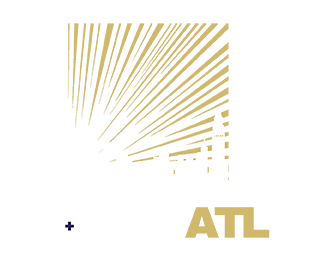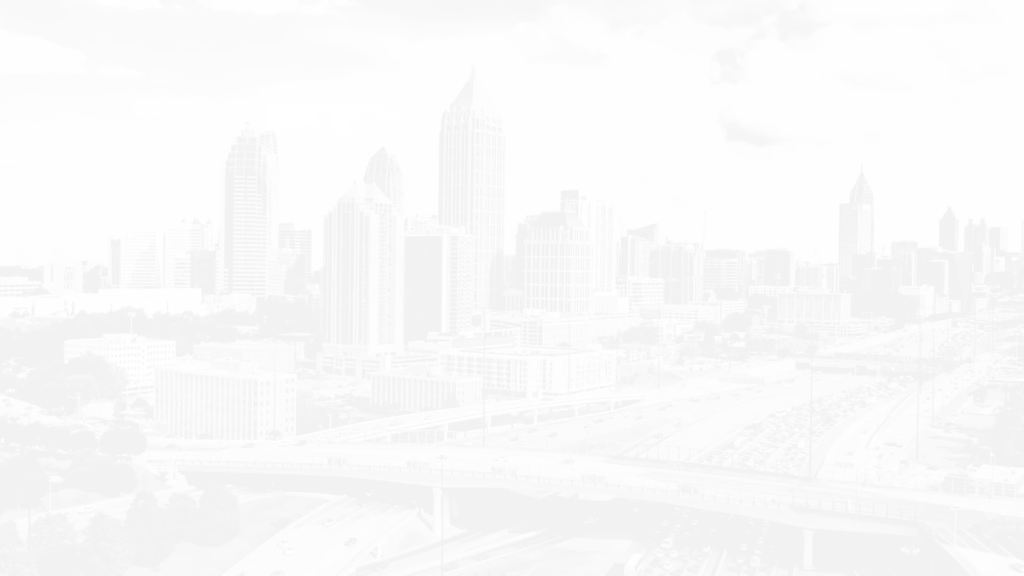Were you in a car accident in the State of Georgia and need to obtain…
If you drive a car on a regular basis, you will probably be involved in an accident sooner or later. Nathan Fitzpatrick, an experienced car accident lawyer in Atlanta, has advocated on behalf of hundreds of car accident victims. What's more? Many of these clients were at least partially responsible for causing the accidents that injured them.

Some states have no-fault insurance laws that require accident victims to deal with their own insurance companies after an accident, regardless of who was to blame. On the other hand, Georgia is an at-fault state. This designation means that car accident victims in the Peach State must file claims with the at-fault driver’s insurance company to receive compensation.
In this article, Attorney Fitzpatrick covers the steps you should take if you are involved in a car accident, what could happen if the wreck was your fault, and the things you can do to reduce your financial and legal exposure. Nathan will also explain how you may still be entitled to compensation even if you acted negligently.
The Initial Shock: Realizing the Accident Is Your Fault
Most of us act foolishly behind the wheel from time to time. We exceed posted speed limits, make phone calls while we are driving, and forget to signal before we change lanes. When these actions lead to an accident, we experience shock and panic as we try to process what just happened.
Some drivers feel the urge to flee the scene in these situations, but doing this will likely make things much, much worse. The actions we take in the moments following a car crash can cast very long shadows indeed, so you should do everything you can to remain calm if you ever cause a motor vehicle crash.
Understanding the Emotional Impact
Remaining calm and acting pragmatically after a wreck can be quite a challenge, especially when there are injuries involved, whether to you or the other driver. It's a challenging situation, but maintaining composure is crucial for everyone's safety, including the injured driver.
Therefore, a composed approach allows for a more effective assessment of the situation, guaranteeing that anyone in the cars involved who needs immediate medical care receives it promptly.
Also, remaining calm enhances communication with emergency services, law enforcement, and other involved parties. This level-headedness is also key in accurately documenting the incident, an essential aspect for future insurance claims and any legal proceedings that may follow.
Remember, your reaction in these initial moments can significantly influence the outcome and resolution of the entire situation.

Legal Implications of Fault in an Accident
Causing a car wreck has financial and possible legal ramifications. In Georgia, if you are responsible for an accident, the other parties involved will file claims with your car insurance company. Should your coverage be insufficient to cover their injury, loss, or damage, they might sue you.
Additionally, being the subject of a lawsuit from one or more car accident victims could lead to a court order to compensate them for their economic or noneconomic damages. This fact means you could be held responsible for paying the other person's medical bills, vehicle damage, or more for some time.
Moreover, punitive damages could be imposed if the car crash resulted from road rage or intoxication.
What Happens if You Are Partially At Fault in a Car Accident?
Most car wrecks are caused by a combination of factors, which means one driver is rarely completely to blame.
Georgia follows the modified comparative fault doctrine in these situations, meaning accident victims can seek compensation for injuries suffered in accidents they cause as long as they are not 50% or more responsible. However, the damages they recover will be adjusted to reflect their degree of fault.
If you are involved in a wreck in Georgia and the facts suggest that you were 40% to blame, the amount of compensation you recover will be reduced by 40%. Insurance companies check police reports when they allocate blame, so you should make sure that you get a copy of this document.
At the Accident Scene: Immediate Actions To Make After the Collision
The steps you take in the minutes following an automobile crash can influence how blame is apportioned, so you should try to gather yourself before you do or say anything. One thing you should definitely do is resist the temptation to flee the scene.
Per Ga. Code § 40-6-270, leaving the scene of an accident is a crime in Georgia that carries a prison sentence of up to five years. Hit-and-run incidents are investigated thoroughly when road users are killed or suffer serious injuries.
One key thing to avoid following a vehicular accident is to refrain from displaying anger, making accusations against the other driver, admitting fault, or apologizing for the incident, even if you believe you were responsible. It's important to stay calm and not declare responsibility to either the police or the other party involved.
Ensuring Safety for All Involved
The Georgia hit-and-run law requires motorists to do all they can to render aid to injured road users, so you should call 911 and ask for an ambulance if you cause a car wreck that results in injuries.
Causing a collision that damages property or injures road users can have financial and legal consequences, and not acting responsibly in the aftermath of a crash can make those consequences more severe.
Documenting the Incident: A Crucial Step
It is important to gather as much information as possible at the scene of a car wreck. Your efforts should focus on collecting contact and insurance information from the other driver, in addition to obtaining the names and contact details of any witnesses.
If people are reluctant to cooperate, it's best to leave these matters to the responding police officers and avoid confrontations.
Additionally, if possible, take a photograph of the other driver's insurance card. While the police officer will note the name of the other driver's insurance company when they collect evidence, they may not record the insurance limits. This information is likely detailed somewhere on the card. As such, ensure you capture images of both the front and back of the card.
Furthermore, you should also take photographs of the vehicles involved and the surrounding area to document the road and weather conditions. These photographs can be crucial for you or your car accident lawyer to review, especially for identifying any cameras that might have captured the accident.
However, before speaking with the other motorist's insurance company, it is advisable to consult with a knowledgeable car accident lawyer.
Insurance Matters: Filing a Claim When You're At Fault
If you cause a car wreck in a state like Georgia that has an at-fault insurance law, parties that suffer injury, loss, or damage as a result of your actions will file claims with your insurance provider.
You will also have to report the accident to your insurance company, and you may be able to submit a claim of your own if you have comprehensive or medical treatment coverage.
If you financed or leased your vehicle, the lender likely required this additional coverage.
Do Not Admit Fault or Apologize
Another immediate action you should take is to resist the natural inclination to apologize. After a car accident, it's essential to avoid admitting fault. This includes not confessing responsibility to the police or the other driver or apologizing for the incident, as doing so can potentially harm your legal position.
When the police arrive, it's important to answer their questions honestly but without admitting fault. Maintaining calmness and not acknowledging any fault is crucial in these circumstances. Likewise, refrain from accusing the other motorist of anything.
Finally, determining who was to blame could have significant financial consequences, so it would be wise to think very carefully before you exchange information or talk to other motorists, witnesses, or first responders at an accident scene.

How to Approach Your Own Insurance Company
You should contact your car insurance provider as soon as you obtain a police report. If you delay, the other driver will have an opportunity to get their account of the events on the record first. This could leave you fighting an uphill battle. Your insurance company will want to settle claims arising from the accident for as little as possible. You will want that, too, if you were to blame.
Potential Impact on Future Premiums
You can expect your auto insurance premiums to rise sharply if you cause a car accident in Georgia. According to data from Quadrant Information Services reported by Bankrate, drivers in Georgia with full coverage can expect to pay 32% more for car insurance after being involved in an at-fault accident. Some car insurance companies have accident forgiveness programs, but they are often optional and cost extra.
Seeking Legal Counsel: Do You Need a Lawyer?
Not every driver who wrecks their vehicle in Georgia needs a lawyer, but it is usually a good idea to at least speak with an attorney if you cause an accident. Most experienced car accident lawyers offer prospective clients a free consultation, so it should not cost you anything to find out where you stand.
Evaluating the Need for Legal Assistance
Whether or not you need a lawyer will be determined by the severity of the accident, your insurance coverage, and the facts of the case. If property damage was light and nobody was injured, you will probably not need to hire an attorney. Also, if the accident was serious, clearly your fault, and you carry only the insurance that the law requires, contacting a lawyer would be a good idea because you could be sued.
Protecting Your Rights and Interests
If you hire a car accident lawyer, you will have an experienced professional negotiating on your behalf. An attorney could protect your rights and interests, and they could conduct an independent investigation into the accident to make sure that the blame was allocated correctly.
Obtaining cell phone records or having the other car inspected could yield new evidence and lead to less compensation for the other driver and more compensation for you.
Financial Implications: Understanding Your Responsibilities
The financial ramifications of causing a motor vehicle accident range from higher insurance premiums and a car repair bill to being ordered to pay tens of thousands of dollars to accident victims.
We all have a duty of care to do all that we reasonably can to protect others from injury, and we can be sued when we fail to meet this duty. Drivers pay for car insurance to protect themselves from the financial consequences of an accident, but auto policies have limits.
Planning for Increased Expenses
The weeks and months following a car accident can be a time of great financial stress. You could suffer injuries that prevent you from working and earning a living, and you may have to pay out-of-pocket for medical treatment that is not covered by your health insurance.
You will also have to pay your insurance policy deductible if you have collision coverage and submit a claim. One thing you won’t have to pay for is an initial consultation with a car accident lawyer.
FAQs: Addressing Common Concerns
What Should I Do Immediately After an At-Fault Accident?
After the at-fault accident happens, you should remain at the scene and call for an ambulance if anybody is injured. You should also gather insurance information from the other driver and contact details from witnesses. Then, you should take photographs of the scene of the accident and the surrounding area.
Later, you'll file a police report and let your insurance company know about the car accident.
How Will My Insurance Be Affected?
You can expect your insurance premiums to rise if you are involved in an accident that was your fault. However, you may be able to avoid this additional expense if your insurance company has an accident forgiveness program.
Can I Be Sued for Damages or Injuries?
That all depends on how serious the accident was and how much insurance you carry. If you do not have enough insurance coverage to provide adequate compensation to parties that suffer injury, loss, or damage, you could be sued.
What is Georgia's Stance on Fault in Car Accidents?
Georgia is an "at-fault" state for car accidents. This means that the driver who is responsible for causing the accident is also responsible for any resulting damages. In determining fault, Georgia follows specific rules.
For instance, if an accident occurs where one driver violates a traffic law and the other driver does not, the fault is generally assigned to the driver who broke the law. This concept is crucial in understanding liability and claims in the event of a car accident involving another driver in Georgia.
Get the Justice You Deserve: Contact The Fitzpatrick Firm for Experienced Car Accident Representation
If you are involved in a motor vehicle accident, you deserve to have an experienced legal professional advocating on your behalf, even if you are the at-fault driver. The Fitzpatrick Law Firm has been fighting for victims of car accidents in the Atlanta area for more than a decade, and we leave no stone unturned when we take on a personal injury case.
If you would like to learn more about your legal options and the compensation you may be entitled to, you can schedule a free consultation by calling us at (678) 607-5550 or filling out our online form below.


